Let’s discover the secrecy of Day-to-Day security. Keys are one of the small things we barely ever think about, until we lose them or need an extra. From the moment humans started locking their homes, keys have been at the hub of security and privacy. Over time, the mechanism of keys evolved from primitive wooden tools of ancient societies into the sophisticated modern-day high-security key mechanisms. Each key is a story of progress, pairing simplicity with security. For better understanding you need to get familiar with different types of door keys. Stay with us for more information.
Traditional Door Keys
Traditional door keys are simple yet efficient, they’ve been the foundation of home security long before modern technology hit the shelves. What is notable about traditional keys is the wide range of security choices available.
From basic pin-tumbler keys easy to duplicate, to more advanced skeleton keys used by old locks, they represent the global trade-off between convenience and security.
While they do not enjoy the cutting-edge security of electronic systems, their dependability and convenience are retained in popularity across the homes of the world. Conventional keys serve to remind us that at times; the answer lies in simplicity.
Pin Tumbler Keys
Pin tumbler keys are the most common of the old keys, utilized on domestic doors for basic security. They are applied to turn a pin tumbler lock, which is made up of an array of pins with varying lengths that must be set properly in order to turn the lock cylinder.
The key’s notches align with these pins and lift each to the correct position to facilitate smooth operation. Worldwide popular due to their affordability and reliability, pin tumbler keys are easy to make and maintain copies of and are thus ideal for domestic use on a daily basis.

Mortise Keys
Mortise keys are one step above in sophistication from regular pin tumbler keys. Mortise key design may look the same as a standard key, but in actuality, it works with a much more complicated locking device in the door.
Due to this complexity, mortise locks are harder to fool around with, hence a secure version over unauthorized entry. While not too popular in household applications, mortise keys are valued when security cannot be compromised and durability is at its peak.
In essence, mortise keys are a blend of hi-tech security and tradition different types of door keys, illustrating that even among all types of door keys, some are specifically tailored for strength and precision.

Skeleton Keys
Skeleton keys are now used on restoration projects or display purposes to keep the aesthetic value and functionality of old locks alive. Collectors and enthusiasts of locks and different types of door keys appreciate skeleton keys for:
- an interesting glimpse into security development
- how initial key designs were all about striking a balance between simplicity and functionality.
In short, skeleton keys may fail to meet today’s security standards, but they are a part of the history of all types of door keys that signify the brilliance of early lock-makers.

Smart Lock Keys
A look into smart lock technology and different types of door keys, where traditional keys are replaced by keyless, electronic access systems. By eliminating tangible keys, smart locks are easy to use and safely offer enhanced benefits. Key Features:
- Keyless Operation: Opts out the need for traditional mechanical keys.
- Multi-Methods of Authentication: Open doors with smartphone apps, RFID cards, PIN codes, or biometric verification.
- Auto-Lock and Tamper Alerts: Door’s auto-lock and notify users of possible intrusion.
- Easy Management: Easy addition, revocation, or modification of access rights for a group of users.
- Customizable Access Settings: Access levels can be changed as per the individual user role or time periods.
With such features and benefits being integrated into it, smart lock keys provide a convenient, flexible, and secure solution to current security needs. They are a great example of how different types of door keys are being transformed in the digital era by both being safe and offering convenience to both domestic and business entities.

Keyless Entry Fobs
Keyless entry fobs represent the latest solution in place of traditional keys to unlock doors, gates, and automobiles. They are used widely in residential compounds, office blocks, and car systems, where it is inconvenient to have a number of keys to deal with.
Apart from being convenient, keyless fobs give additional security in the sense that they minimize the opportunities for lost or duplicated keys, and access can be withdrawn immediately if a fob is lost or stolen in many systems.
In addition to plain entry, some key fobs also have sophisticated features such as recording access history, controlling more than a single door or gate, and compatibility with home automation systems for added functionality.
By the integration of ease with extended control, keyless entry fobs show how modern technology is reshaping the landscape of any type of door keys.

Smart Key Fobs
The technology uses electronic actuators in addition to the door’s locking system. Some models also facilitate remote control anywhere in the world, easily allowing for control of access even when not on site at the property.
Smart keys are particularly suitable for multi-family dwellings, rental homes, or offices with frequent visitors.
- Rental apartments: Provide temporary codes of access to renters or services personnel without issuing physical keys.
- Offices or commercial buildings: Enable access for workers, visitors, and contractors, while logging entrances.
Other capabilities include activity logging, user access, and linking with overall building or smart home automation systems. By combining the ease of use, remote operation, and increased security, smart key fobs illustrate how technology is transforming the face of all types of door keys, providing a convenient solution for modern living and business environments.

Bluetooth and NFC-enabled Smart Keys
With Bluetooth-enabled smart keys, the device will send communication to the lock within a range, providing automatic or app-enabled entry. With NFC-enabled keys, there is close-proximity communication, where the user is required to tap the device on a sensor to open the door.
Both methods offer secure encryption, reducing the likelihood of unwanted entry, and enable easy functions such as temporary access codes, remote viewing, and activity reports.
Blending mobility, real-time control, and advanced security, Bluetooth and NFC-based smart keys are the benchmark of the future for all kinds of door keys in today’s digital world.

Biometric Smart Locks
Biometric smart locks are the epitome of modern security through the use of unique human characteristics, fingerprint, facial scan, or even iris recognition to allow it.
Unlike traditional keys or keycards, these locks entirely circumvent the use of physical keys, so only the authorized may enter. These locks work by scanning the user’s biometric data and comparing it to the templates stored in the memory of the lock.
Upon finding a match, it immediately unlocks the door. Besides this, most biometric locks are also smartphone and smart home system compatible, offering remote control of access, activity history, and temporary guest access.

High-Security Keys
Some high security keys have restricted keyways so that only approved manufacturers or locksmiths can reproduce them. This makes it practically impossible or extremely hard to make unauthorized copies, essentially neutralizing the potential for unlawful entry.
Many high-security systems also feature master key configurations for managed access by multiple users and still retain strict security. This allows various people to access different locks within one system but at the same time controls security.
For example, a facility manager may hold a master key that fits all doors, yet the employees hold keys that are specifically capable of opening certain areas relevant to their work.
Restricted Key Systems
Such control allows organizations to maintain sensitive areas secure, protect valuable assets, and remain in command of access. By the integration of security, control, and traceability, restricted key systems are an innovative approach to modern access control.
A significant element of the environment for all types of door keys, they are particularly important where protection against unwanted intrusion is paramount.

Biometric Keys for High-Security Locks
Biometric keys represent one of the most advanced security choices for high-security areas. By way of application of unique biological characteristics—fingerprints, facial details, or iris patterns, biometric keys provide access to doors without the application of mechanical keys.
The advantages of biometric keys extend beyond security. Biometric keys are convenient, avoid the risk of lost or stolen keys, and allow advanced logs of access to track who comes and when.
These all combined make biometric keys for high-security locks a top choice among all types of door keys where safety and control take priority.
Choosing the Right Type of Door Key
Multi-entry homes or shared-access homes can use different types of door leys like master key systems or restricted key systems to control who can duplicate keys. For older doors or pieces of furniture, skeleton keys can be employed in order to preserve history while maintaining minimal security.
In commercial or high-security settings, there are higher-level solutions such as biometric smart locks, restricted key systems, and high-security keys, which provide greater protection.
Such systems have characteristics such as biometric authentication, master key levels, and restricted duplication, which provide controlled access and lower chances of unauthorized entry.
For ease and convenience, intelligent locking systems like Bluetooth, NFC keys, and key fobs allow safe entry with no physical keys.

Conclusion
The selection between different types of door keys would also be based on the degree of security required, ease of operation, access control, and compatibility with emerging technology. Residential use would see pin tumbler or smart locks as an ideal combination of security and convenience, while businesses and secure institutions would find restricted key systems or biometric systems convenient for enhanced control.
For those who are looking to enhance their security or the most suitable solution for their premises, Simpled UK offers professional guidance and complete solutions.
Whether classic, smart, or high-security keys, their professional help can guide you in choosing the perfect system to protect your area effectively. Informed on every type of door key and application, you can make sensible decisions that enhance safety, convenience, and peace of mind.
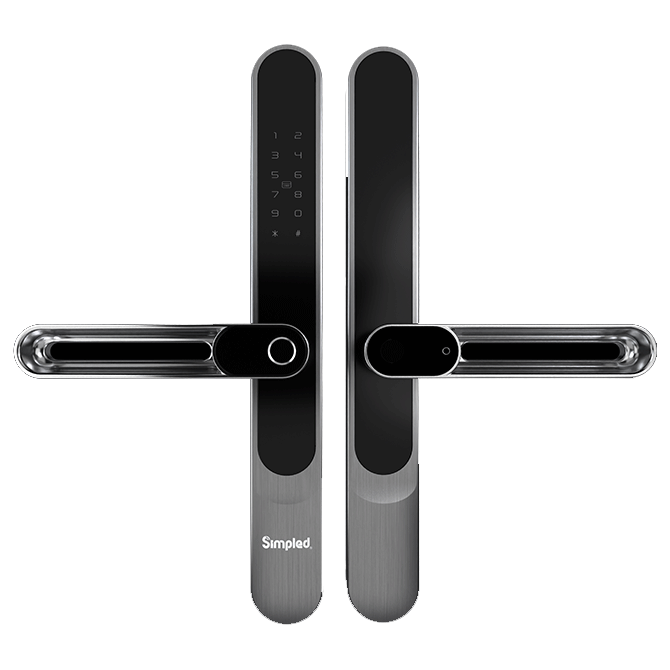
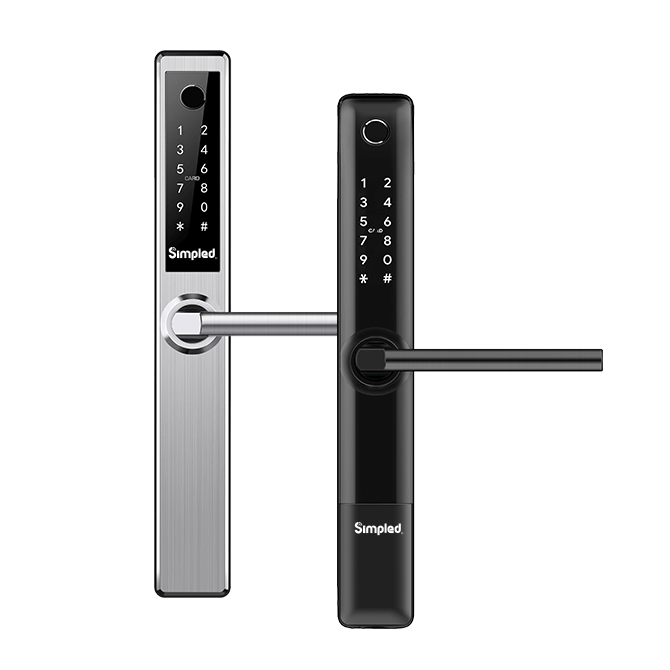


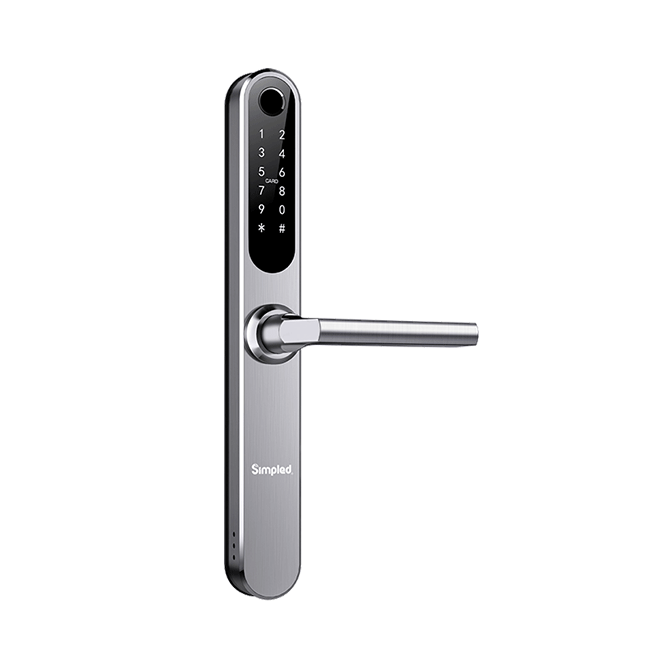
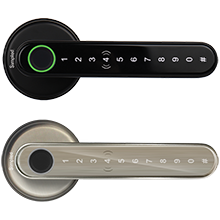
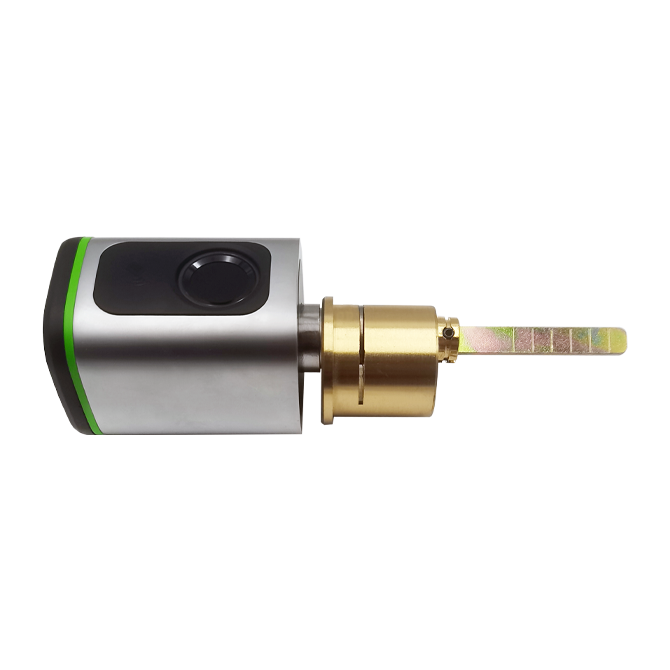
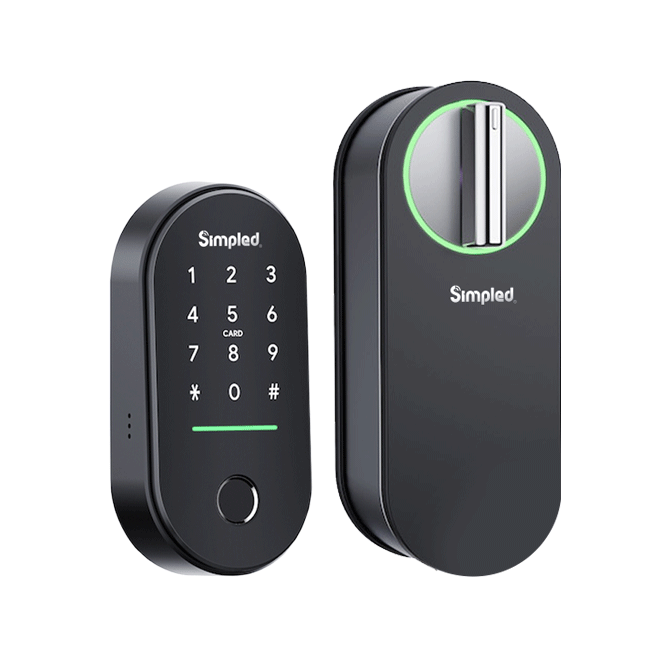
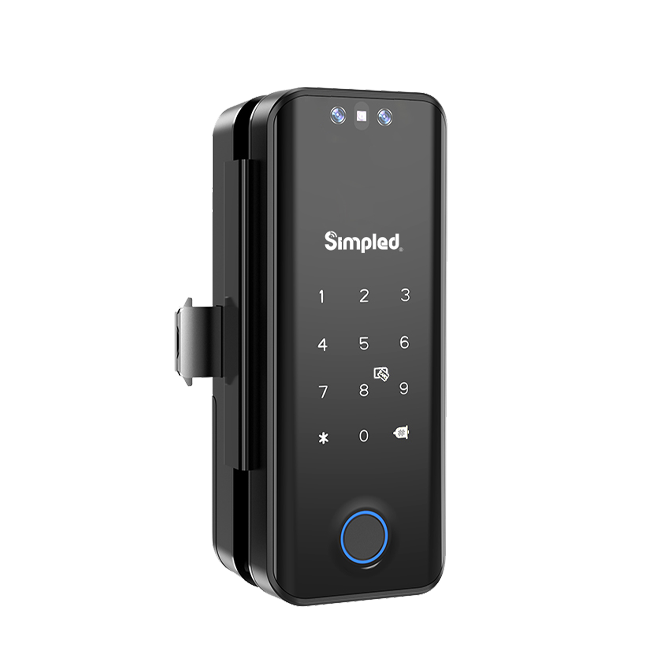

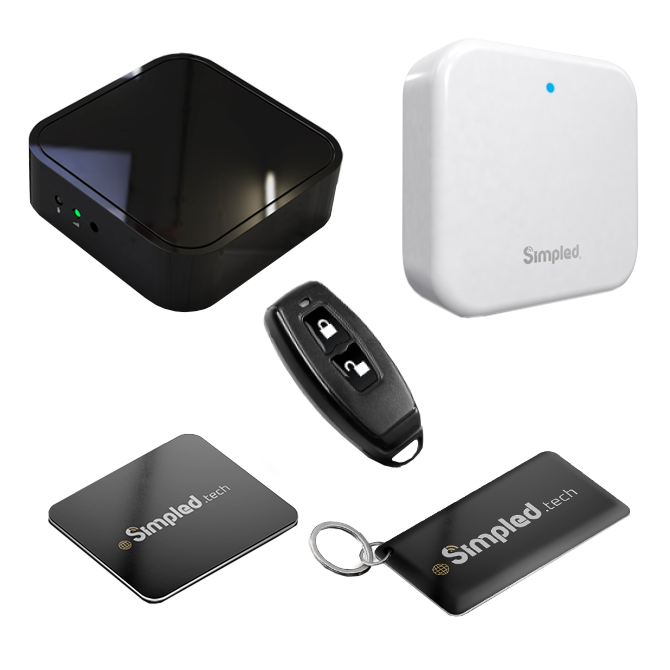


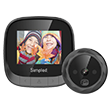
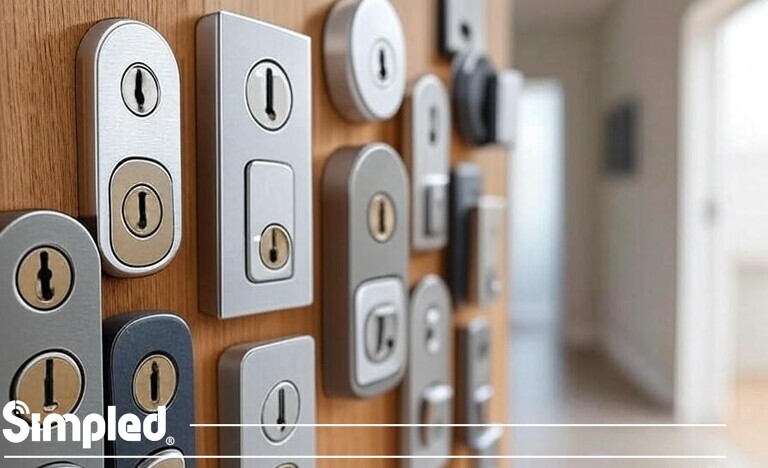
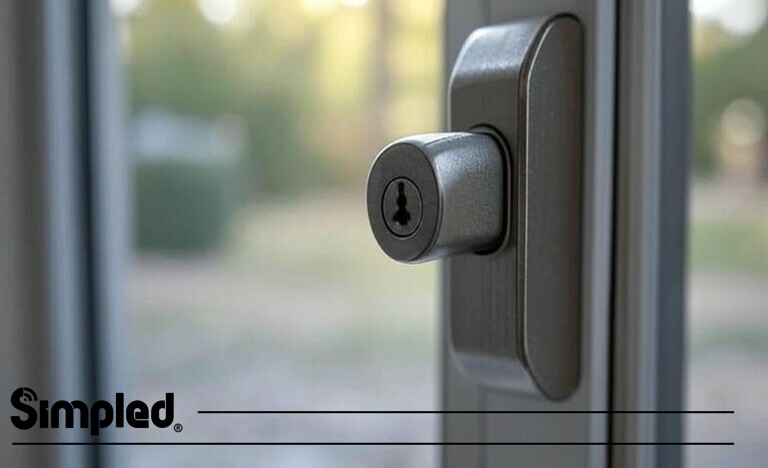
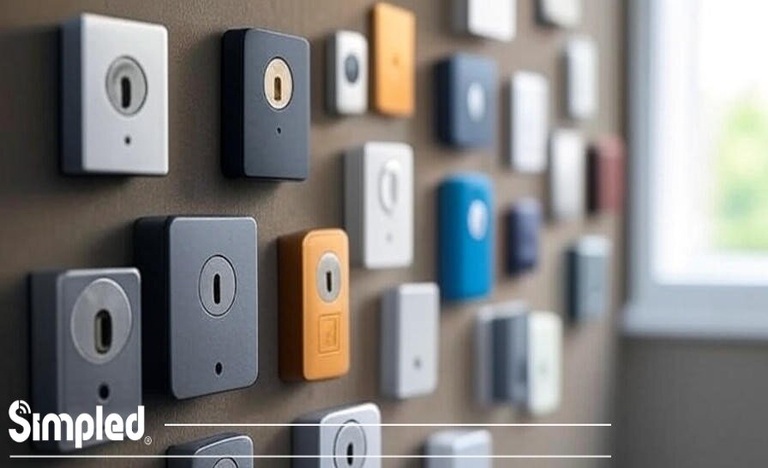
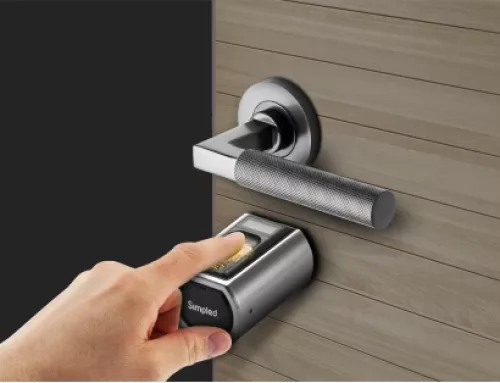
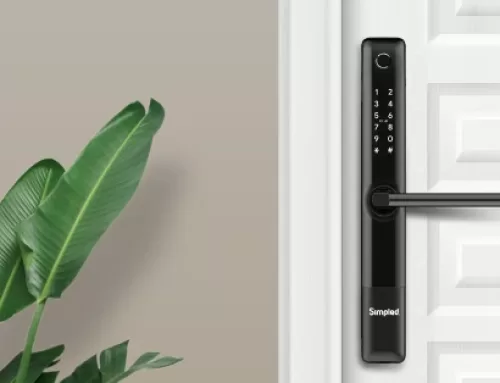
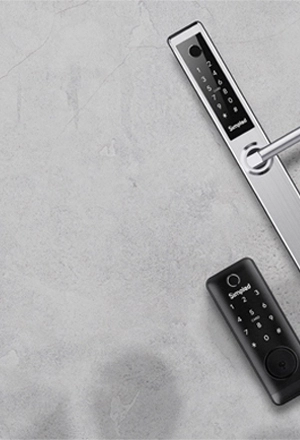

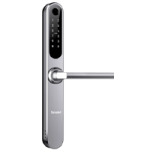
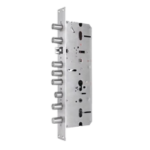
Leave A Comment